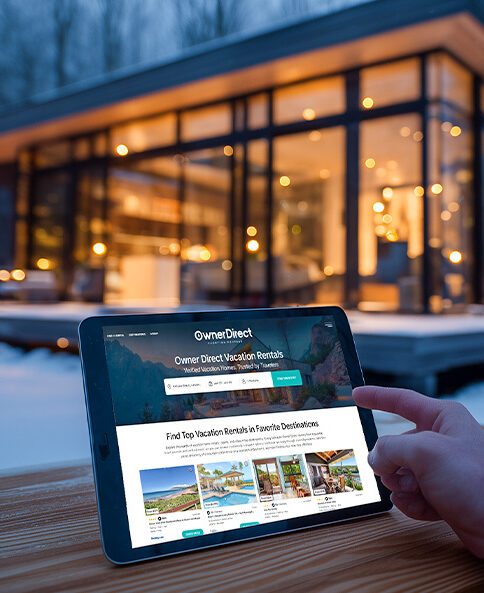The travel industry is experiencing a revolutionary transformation, driven by the rapid advancement of artificial intelligence (AI) technologies. At the forefront of this change is the rise of AI-driven personalized travel recommendations, which are reshaping how travelers plan and experience their journeys. These intelligent systems are creating a paradigm shift in the way people discover, book, and enjoy travel experiences.
AI-based personalized travel recommendations offer numerous advantages to travelers. By analyzing individual preferences, past behaviors, and contextual data, AI algorithms can suggest destinations, accommodations, and activities that align with each traveler’s unique interests. This tailored approach not only saves time by quickly filtering through vast amounts of information but also introduces travelers to hidden gems they might not have discovered on their own. Moreover, these AI systems can provide dynamic recommendations based on changing circumstances, ensuring that travelers always have access to the most relevant and up-to-date information.
For travel businesses, implementing AI-driven personalized recommendations yields significant rewards. By providing relevant and tailored suggestions, companies can enhance the overall customer experience, leading to higher satisfaction rates and improved customer loyalty. This personalized approach creates a sense of understanding and value, encouraging customers to return and use the service again. Furthermore, targeted recommendations are more likely to result in bookings, increasing overall conversion rates and revenue. In a crowded market, companies that leverage AI for personalization can differentiate themselves, attracting and retaining more customers by offering a superior, tailored experience.
At the heart of many personalized travel recommendation systems lies collaborative filtering AI, a sophisticated technology that plays a pivotal role in delivering tailored suggestions to travelers. This approach enables businesses to provide personalized recommendations by analyzing patterns in user behavior, preferences, and feedback across a large user base. As more data is collected, the system continually refines its recommendations, becoming increasingly accurate over time.
Investing in AI-based collaborative filtering is important for travel businesses looking to stay competitive in an increasingly digital and personalized market. The potential benefits include enhanced user experience, increased engagement, higher conversion rates, valuable data-driven insights, and improved scalability. By implementing collaborative filtering AI, businesses can make informed strategic decisions and efficiently handle growing user bases without compromising on personalization.

What is Collaborative Filtering AI?
Collaborative filtering AI is a sophisticated machine learning technique used to create personalized recommendations based on user behavior and preferences. In the context of travel, this technology analyzes patterns in travelers’ choices, ratings, and interactions to suggest destinations, accommodations, activities, and services that align with their interests.
The system works by identifying similarities between users and items. For instance, if two travelers have similar histories of liking beach resorts, the system might recommend a beach destination to one traveler based on the preferences of the other. This approach allows for highly personalized suggestions, even for destinations or services that a user hasn’t explicitly shown interest in before.
The implementation of collaborative filtering AI has significantly transformed the travel industry. Travel agencies, online booking platforms, and destination management companies are leveraging this technology to enhance their services and improve customer experiences. Major online travel agencies use collaborative filtering to recommend hotels and flights based on a user’s browsing and booking history. Destination management companies employ these systems to suggest attractions and activities that align with a traveler’s interests. Even airlines and hotel chains are adopting this technology to personalize their offerings and loyalty programs.
By providing tailored recommendations, businesses can increase customer satisfaction, boost engagement, and ultimately drive sales. This personalized approach helps travelers discover new experiences they might enjoy, leading to more fulfilling trips and increased loyalty to the platforms that facilitate these discoveries.

How Collaborative Filtering AI Works
Collaborative filtering AI operates by analyzing vast amounts of user data to identify patterns and make predictions about user preferences. The process involves several key steps:
1. Data Collection: The system gathers information about users’ interactions with various travel-related items, such as hotel bookings, flight selections, attraction visits, and ratings.
2. User-Item Matrix Creation: This data is organized into a matrix where rows represent users and columns represent items (e.g., hotels, destinations). The cells contain interaction data, such as ratings or booking frequency.
3. Similarity Calculation: The AI calculates similarities between users based on their interaction patterns. It also determines similarities between items based on how users interact with them.
4. Neighborhood Formation: For each user, the system identifies a “neighborhood” of similar users. For items, it identifies similar items.
5. Prediction and Recommendation: Based on the preferences of similar users or the characteristics of similar items, the system predicts a user’s potential interest in new items and generates personalized recommendations.
This process allows the AI to suggest travel options that a user is likely to enjoy, even if they haven’t interacted with those specific options before. The system continuously learns and refines its recommendations as it gathers more data, improving the accuracy and relevance of its suggestions over time.
Benefits of Personalized Travel Recommendations with Collaborative Filtering AI
The implementation of collaborative filtering AI in travel recommendations offers numerous benefits for both travelers and businesses. For travelers, the most significant advantage is the ability to receive tailored travel experiences. By analyzing a user’s preferences and behavior, along with data from similar users, the AI can suggest destinations, accommodations, and activities that align closely with the traveler’s interests. This personalization can lead to more satisfying and memorable trips, as travelers are more likely to discover experiences they truly enjoy.
Increased user engagement is another key benefit. When travelers receive personalized recommendations, they are more likely to interact with the platform, exploring various options and spending more time planning their trips. This increased engagement can translate into higher conversion rates for travel businesses, as users are more likely to book trips that align with their preferences.
For businesses, collaborative filtering AI can significantly improve customer satisfaction and loyalty. By consistently providing valuable and relevant recommendations, companies can build trust with their users, encouraging them to return to the platform for future travel planning. This enhanced customer relationship can lead to increased repeat business and positive word-of-mouth referrals.
Moreover, the use of collaborative filtering AI can drive business growth by attracting and retaining customers. In a competitive market, the ability to offer highly personalized recommendations can be a significant differentiator, setting a company apart from its competitors and attracting new users seeking a more tailored travel planning experience.

How Collaborative Filtering AI Systems for Personalized Travel Could Work
While specific collaborative filtering AI systems may vary, here are three hypothetical examples of how such systems could be implemented in the travel industry:
History-Based Travel Recommendations
This could be a comprehensive travel recommendation platform that analyzes a user’s past trips, searches, and ratings to suggest personalized travel packages. Key features might include multi-factor analysis (considering factors like budget, preferred activities, and travel style), real-time pricing optimization, and integration with social media for collaborative planning. This system would be ideal for online travel agencies and metasearch engines.
Interest-Based Travel Recommendations
This could focus on recommending destinations and attractions based on a user’s interests and past travel history. It might incorporate image recognition AI to analyze photos from previous trips, identifying preferred landscapes or architectural styles. This system could be particularly useful for tourism boards and destination marketing organizations.
Preference-Based Travel Recommendations
This could specialize in personalized accommodation recommendations. By analyzing factors such as a user’s preferred amenities, location preferences, and budget constraints, it could suggest highly tailored hotel or vacation rental options. This system would be well-suited for hotel chains, vacation rental platforms, and property management companies.
Each of these systems would leverage collaborative filtering AI to provide increasingly accurate and personalized recommendations as they gather more user data and feedback.
Implementing Collaborative Filtering AI for Personalized Travel
Implementing collaborative filtering AI for personalized travel recommendations involves several key steps and considerations:
Initial Considerations
Before implementation, businesses should carefully assess their specific needs and goals. This includes evaluating the current state of their recommendation system (if any), identifying target improvements, and considering factors such as the size of their user base and the diversity of their travel offerings. Choosing the right collaborative filtering AI system should be based on the business’s specific requirements, technical capabilities, and scalability needs.
Optimization
Once a system is chosen, the next step is integration with existing platforms. This process may involve API integrations, data migrations, and modifications to user interfaces. Businesses should focus on creating a seamless user experience, ensuring that the AI-powered recommendations are presented in an intuitive and non-intrusive manner. Continuous testing and refinement are essential to optimize the system’s performance and enhance the user experience.
Overcoming Challenges
Implementing collaborative filtering AI is not without challenges. Data quality and privacy concerns are significant issues that need to be addressed. Businesses must ensure they have robust data collection and management practices in place, complying with relevant data protection regulations. The “cold start” problem, where the system lacks sufficient data for new users or items, can be mitigated through hybrid approaches that incorporate content-based filtering alongside collaborative filtering.
Another challenge is maintaining the balance between personalization and diversity in recommendations. While personalized suggestions are valuable, it’s also important to introduce some variety to prevent users from being trapped in a “filter bubble” of familiar options.

Revolutionizing Travel Through AI-Powered Tailored Recommendations
Collaborative filtering AI is revolutionizing the travel industry by enabling highly personalized travel recommendations. This technology offers significant benefits for both travelers and businesses, enhancing the travel planning experience and driving customer satisfaction and loyalty.
As AI continues to evolve, we can expect even more sophisticated and accurate personalization in the travel industry. Businesses that invest in and effectively implement collaborative filtering AI will be well-positioned to meet the growing demand for personalized travel experiences.
Travel AI stands at the forefront of this revolution, offering cutting-edge solutions that leverage collaborative filtering AI to deliver exceptional personalized travel recommendations. By partnering with Travel AI, businesses can tap into the power of AI to transform their travel offerings and stay ahead in an increasingly competitive market.
We encourage readers to explore how Travel AI can help their business implement collaborative filtering AI for personalized travel recommendations. By embracing this technology, travel companies can enhance their services, improve customer satisfaction, and drive growth in the dynamic world of modern travel.




